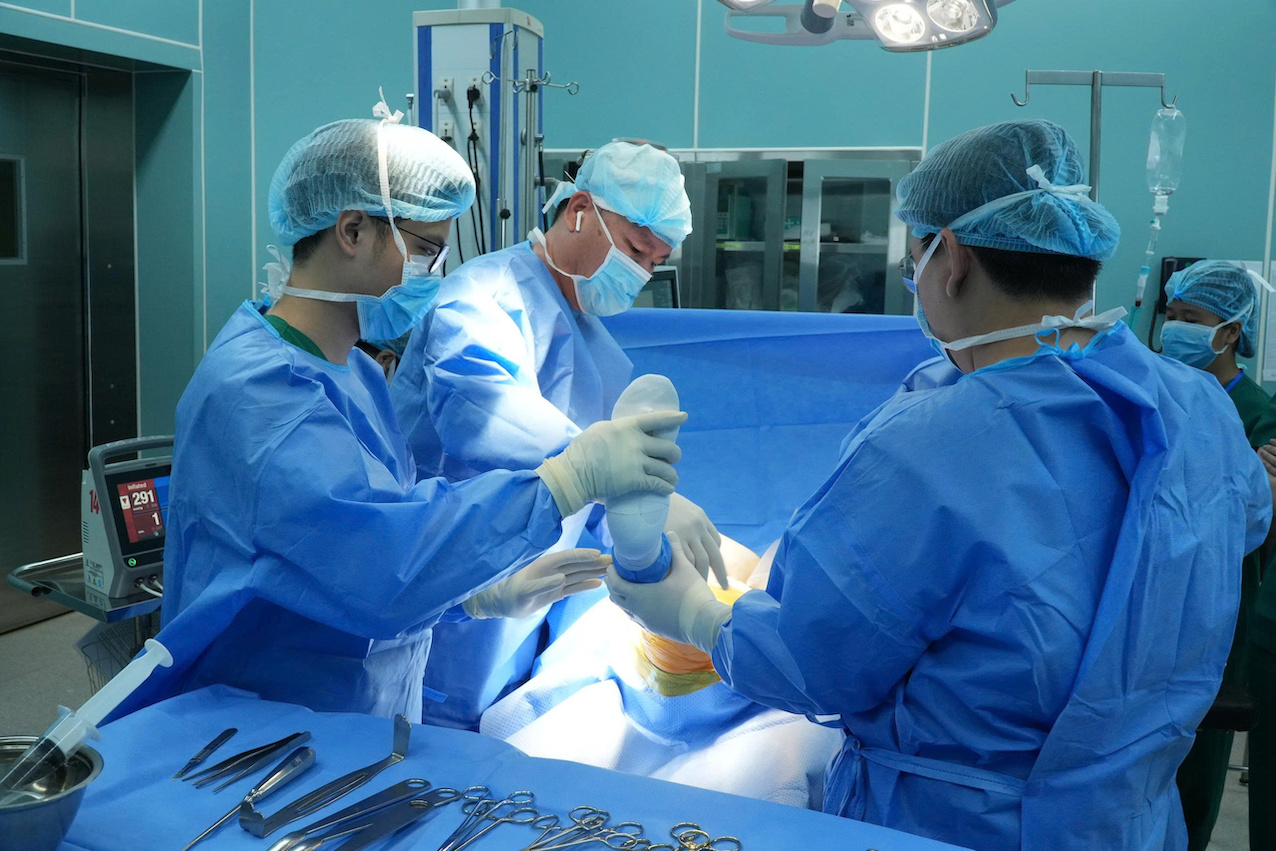"The success of a surgery lies not only in the operating room procedures but also begins with the pre-admission preparation process," said Colonel, Dr. Phan Dinh Mung, Deputy Director of the 175 Military Hospital and Director of the Institute of Orthopedic Trauma, at a training program on ERAS updates and early postoperative recovery for patients on 20/9.
Specifically, if patients quit smoking and alcohol for at least one month, while also managing underlying conditions and optimizing nutrition and physical condition, their postoperative recovery will be faster with fewer complications. International statistics show that the non-smoking and non-drinking group has a significantly lower rate of postoperative infection compared to the group that maintains these habits.
According to Dr. Mung, ERAS is an essential trend in modern surgery as it values the entire chain of care before, during, and after surgery, instead of just focusing on surgical techniques. This concept originated in 1997 in Denmark for gastrointestinal surgery and has since spread to many specialties, especially orthopedic trauma. In Vietnam, ERAS has only been implemented in recent years at some major hospitals, bringing clear benefits such as faster recovery, reduced complications, shorter hospital stays, and improved treatment quality.
Before surgery, patients are counseled to reduce anxiety, practice breathing exercises, maintain physical condition, and adjust their diet. Instead of prolonged fasting, patients can eat 6 hours before and drink plain water or sugar water 2 hours before surgery. Carbohydrate intake helps limit muscle loss and reduces insulin resistance, a common postoperative reaction.
During surgery, controlling body temperature and using minimally invasive techniques helps reduce blood loss, limit blood transfusions, and shorten hospital stays. Measures such as keeping patients warm, warming intravenous fluids, and continuous body temperature monitoring help reduce the risk of infection, blood loss, and serious complications. After surgery, pain control through regional anesthesia, nerve blocks, and multimodal analgesia helps patients limit opioid use, experience fewer side effects, and get up and walk around sooner.
 |
Surgeons at the 175 Military Hospital. Photo: Hospital provided |
Surgeons at the 175 Military Hospital. Photo: Hospital provided
According to Dr. Mung, a major challenge in implementing ERAS is the need for close coordination between many specialties such as surgery, anesthesiology and resuscitation, nursing, nutrition, physiotherapy, and hospital management. This is not just a professional issue but also relates to organizational culture, requiring a change in long-standing medical habits.
The experience at the 108 Military Central Hospital shows that ERAS helps shorten hospital stays, reduce costs for antibiotics, intravenous fluids, probes, and drains, while also limiting complications and helping patients move early, reducing pressure on medical staff. The University of Medicine and Pharmacy Hospital in TP HCM has also recorded similar results since implementing ERAS in 2019, especially in joint replacement and lung cancer surgeries.
Experts believe that to achieve sustainable effectiveness, close direction from leaders, a competent specialized team, and a change in awareness from medical staff to patients are needed. This process often takes 3-5 years, but is considered a feasible and safe solution to improve the quality of postoperative care in Vietnam.
Le Phuong












